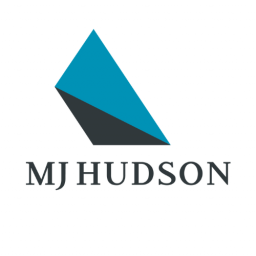The Due Diligence Questionnaire (DDQ) is a key item in the suite of due diligence materials that most, if not all, private markets fund managers will need to prepare when raising a fund.
It will be a core resource for prospective LPs when undertaking due diligence. Consequently, as much thought should go into its preparation as does that for the fundraising presentation and PPM.
Here are 10 tips to help those charged with preparing a fundraising DDQ.
1. Start the process early
Don’t underestimate the time it will take. It is not uncommon for a DDQ to run to 100+ pages these days and to take 4-8 weeks (or more) to prepare. Don’t start the process one week before your data room needs to open.
2. Established managers still have work to do
For more established managers the process should be quicker, as you will likely have an existing document to work from. But DDQs continue to evolve. In particular, the number of questions around topics such as operations, administration, ESG and (mostly recently) diversity has expanded substantially in recent years. That DDQ you prepared for your last fundraise five years ago. It may no-longer cut the mustard.
3. You don’t have to re-invent the wheel
Basing your DDQ on a credible template will greatly assist in a) knowing which questions to include; b) how to best structure the document; and c) ensuring it covers all the necessary bases. As good as starting point as any is the ILPA Due Diligence Questionnaire (ILPA DDQ), which was designed to ease the administrative burden placed on private equity LPs and GPs by standardising the most frequent and important diligence questions posed by investors. Be aware that ILPA continuously updates the ILPA DDQ, however, and it is worth checking if a revised version is available.
4. Consider what can be left in and what can be left out
The ILPA DDQ is a thorough and comprehensive template DDQ that covers all the aspects your DDQ should cover. However, it is primarily private equity-focused and somewhat geared towards more established fund managers. Those raising infrastructure, private debt, or natural resources funds, or those raising a Fund I, will need to adapt it.
5. Don’t forget the supporting information
The DDQ should be part of a suite of due diligence materials and will go into the data room. The exact nature of the additional DD materials required will vary, based on the specifics of the fund and manager and how established it is. The ILPA DDQ has a very useful list in its appendix, along with templates that can be adapted.
6. Get your fund administrator involved well in advance of finalising the DDQ
A significant portion of the modern DDQ concerns the operations and administration of the fund and fund management structure. Consequently, you will need input from your fund administrator (if administration is outsourced), and potentially also from other advisors, to complete the document. Get them involved early in the process.
7. And your lawyers need to be involved, too
Whilst fund counsel will likely have less input into the DDQ than they do the PPM, if it covers terms (the ILPA DDQ does, for example), then it is sensible to have fund counsel review relevant questions/sections.
8. Include an ‘Important Notice’ or Disclaimer up front
This should mirror that used in your PPM and data room and be drafted by fund legal counsel.
9. Consider using a third party to help prepare the document
Engaging with a credible third party that has experience of helping private markets firms prepare DDQs can greatly ease the fundraising preparation burden. MJ Hudson’s Investor Relations & Marketing Solutions team has experience of preparing DDQs across the private markets spectrum. To find out more, please contact Jon Greene, using the contact details below.
10. Keep it updated
You may not want to look at another DDQ once you have managed to successfully close your fund, but the effort of periodically reviewing the document and updating it as necessary (team changes, track record, etc.) will pay dividends in speeding up the process of preparing the DDQ for your next raise.

